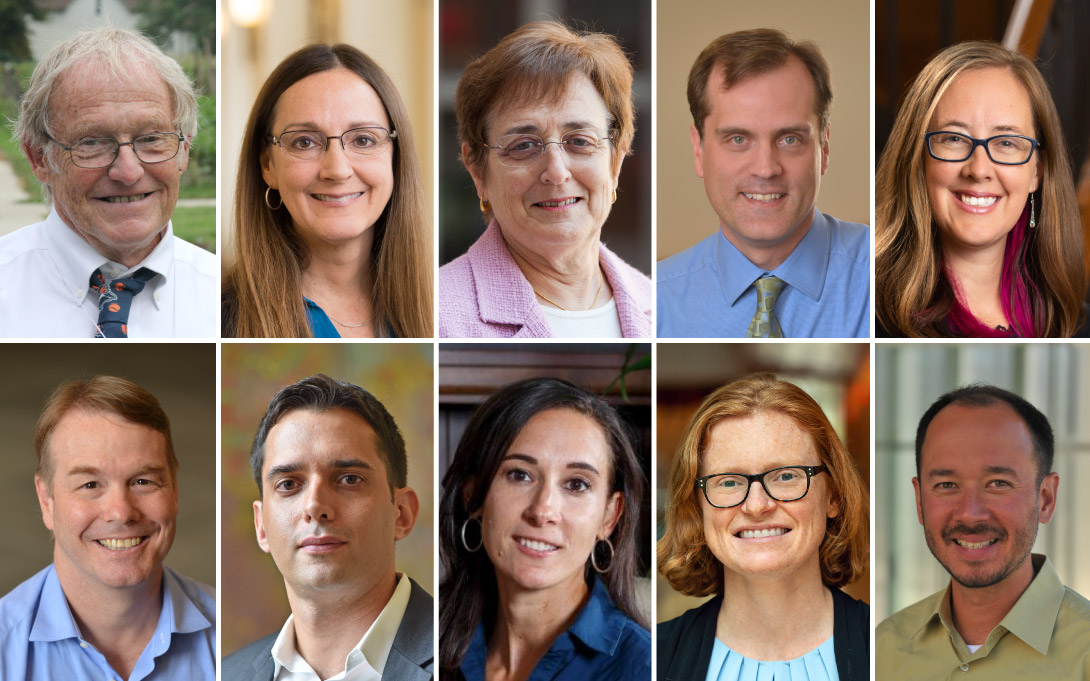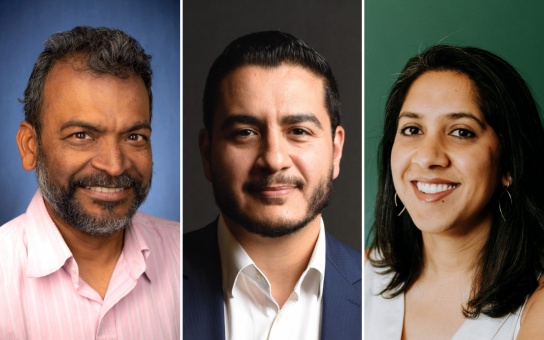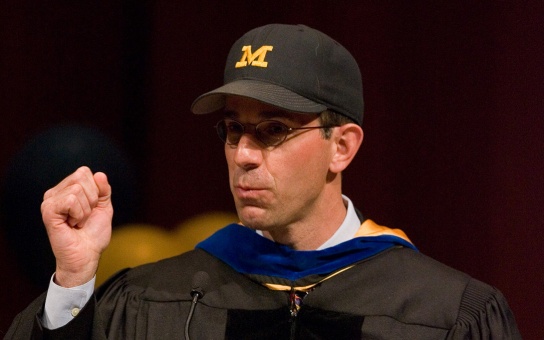
The U-M Institute for Clinical & Health Research recognized John Ayanian with a 2020 Distinguished Clinical and Translational Research Mentor Award.
Joshua Basseches received a grant from the Climate Social Science Network to continue working on the role of investor-owned utilities in shaping state level climate and energy policies.
Michael S. Barr was named to the Association of Professional Schools of International Affairs executive board. He was elected as a National Academy of Public Administration Fellow.
John Ciorciari co-edited a new book called The Courteous Power: Japan and Southeast Asia in the Indo-Pacific Era (U-M Press).
Ren Farley published "Chocolate City, Vanilla Suburbs Revisited: The Racial Integration of Detroit's Suburbs," that Harvard's Du Bois Review featured in its summer issue.
Liz Gerber began a two-year term as Faculty Innovator in Residence at the U-M Center for Academic Innovation. She published an article, "The Role of Human and Social Capital in Earthquake Recovery in Nepal," in Nature Sustainability.
Edie Goldenberg secured grants from the Mellon Foundation and the Seller- Lehrer Family Foundation for the development, delivery, and evaluation of Dinners for Democracy on all three U-M campuses. She received the MIT Alumni Association Bronze Beaver Award for alumni service.
Ben Green published "Algorithmic Risk Assessments Can Alter Human Decision-Making Processes in High-Stakes Government Contexts," in the Proceedings of the ACM on Human-Computer Interaction.
Jon Hanson published "Leviathan's Latent Dimensions: Measuring State Capacity for Comparative Political Research," in the Journal of Politics.
Catie Hausman co-authored a new NBER Working Paper, "Who Will Pay for Legacy Utility Costs?," and served as a mentor in the inaugural Association of Environmental and Resource Economists Scholars Program.
Morela Hernandez published "Taking Inequality Seriously," in the Academy of Management Review and published a column, "The Problem With Certainty," in the MIT Sloan Management Review. She received the Academy of Management Journal Best Reviewer Award.
Paula Lantz co-wrote a report on potential impacts of COVID-19 for the trustees of Medicare and Social Security for the National Academy of Social Insurance taskforce. She published an opinion in Milbank Quarterly on how critical race theory can address health disparities.
John Leahy was elected as a fellow of the Econometric Society. He is one of just two U-M Fellows.
Stephanie Leiser has an article forthcoming in State and Local Government Review titled "Perceptions of Local Government Fiscal Health and Fiscal Stress: Evidence from Quantile Regressions with Michigan Municipalities and Counties."
Yusuf Neggers became a faculty affiliate with the Jameel Poverty Action Lab. He was awarded a USAID Development Innovation Ventures grant to bring his web platform PayDash to scale in India and improve worker payment delivery.
Mara Ostfeld began designing and implementing the first representative survey measuring public opinion in Puerto Rico; the project will help build the University of Puerto Rico's social science research infrastructure.
Susan D. Page was elected to the Executive Council of the African Studies Center at U-M. She's also a member of the U-M's Council on Global Engagement, and is serving on the search committee for the new Associate Vice Provost for International Engagement.
Shobita Parthasarathy testified before the U.S. House Committee on Science, Space, and Technology Subcommittee on Energy about fostering equity in energy innovation.
Natasha Pilkauskas and Kathy Michelmore published "Tots and Teens: How Does Child's Age Influence Naternal Labor Supply and Child Care Response to the Earned Income Tax Credit" in the Journal of Labor Economics. Pilkauskas also won the IPUMS research award for her coauthored paper, "Historical Trends in Children Living in Multigenerational Households in the United States: 1870– 2018."
Sheville interviewed Attia Qureshi about creating an inclusive workplace culture.
Barry Rabe received the 2021 NASPAA/ASPA Distinguished Research Award and the 2021 Louis Brownlow Award from the National Academy of Public Administration.
Luke Shaefer testified about the Child Tax Credit before the U.S. House Select Subcommittee on the Coronavirus Crisis.
Carl Simon co-authored "Modeling the Population Effects of Escape Mutations in SARS-CoV-2 to Guide Vaccination Strategies" in Epidemics and "The Importance of Peer Imitation on Smoking Initiation Over Time: A Dynamical Systems Approach" in Health Care Management Science.
Molly Spencer published two poems in the Los Angeles Review and read in the Marin Poetry Center's reading series. In October, she sat on two panels at the LIT Youngstown Fall Literary Festival.
Kevin Stange published a working paper, "The Pandemic's Effect on Demand for Public Schools, Homeschooling, and Private Schools," with postdoctoral fellow Tareena Musaddiq.
Christina Weiland and Brian Jacob received a new grant from the Michigan Department of Education to identify how to support children who have been affected by the COVID-19 pandemic.
Dean Yang was awarded a $3.2 million grant from the National Institutes of Health to further his research on the economics of health decision-making in Mozambique.

Welcome
Arun Agrawal, the Samuel Trask Dana Professor of Governance and Sustainability, received a courtesy appointment as a professor of public policy. Agrawal emphasizes the politics of international development, institutional change, environmental conservation, and sustainability in his research and teaching.
Abdul El-Sayed, MD, DPhil, joins the Ford School as a Towsley Foundation Policymaker in Residence. Dr. El-Sayed is a public servant, Michigan politician, former public health professor at Columbia University, and a medical doctor. He brings deep expertise in understanding and addressing factors that exacerbate health inequality.
Attia Qureshi is a new lecturer at both the Ford School and the Ross School of Business. Qureshi is an organizational culture consultant who helps organizations move past dysfunction and build united, collaborative, and inclusive cultures.

In memoriam
Robert Schoeni passed away on October 13, 2021 after a long, courageous battle with ALS. Bob was a long-time faculty member at ISR, where for years he co-directed the Panel Study of Income Dynamics. He taught at the Ford School for several years, and was very popular among our students for his caring, supportive approach; the Class of 2007 elected him as faculty commencement speaker as a sign of their affection and respect. Contributions to Bob's memory can be made to Active Against ALS, The Robert F. Schoeni Research Professorship at ISR, or Ann Arbor Rec and Ed sports. Read about Bob and find links here.
More in State & Hill
Below, find the full, formatted fall 2021 edition of State & Hill. Click here to return to the fall 2021 State & Hill homepage.